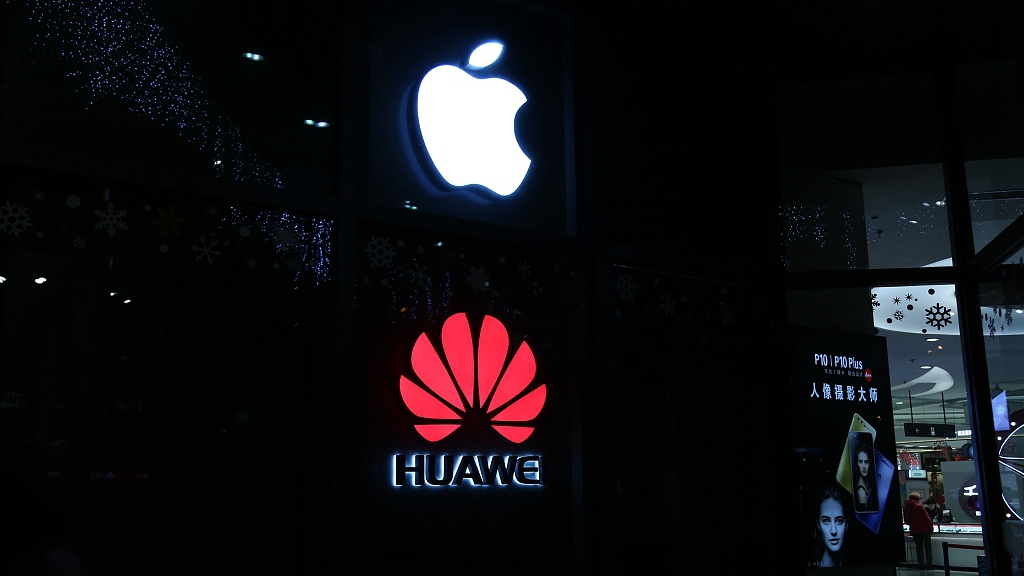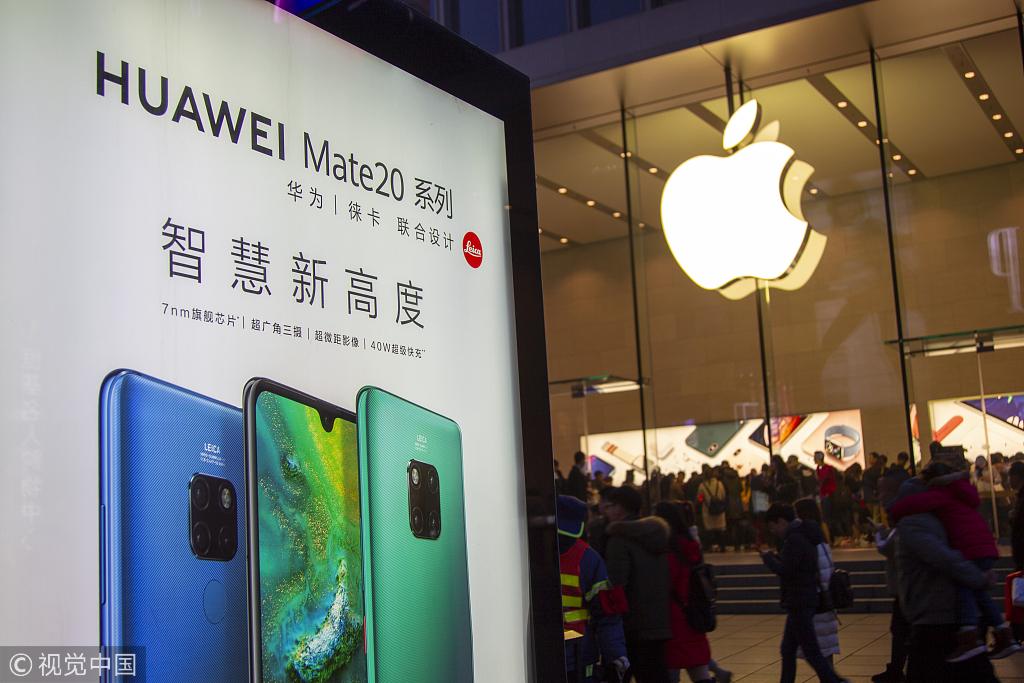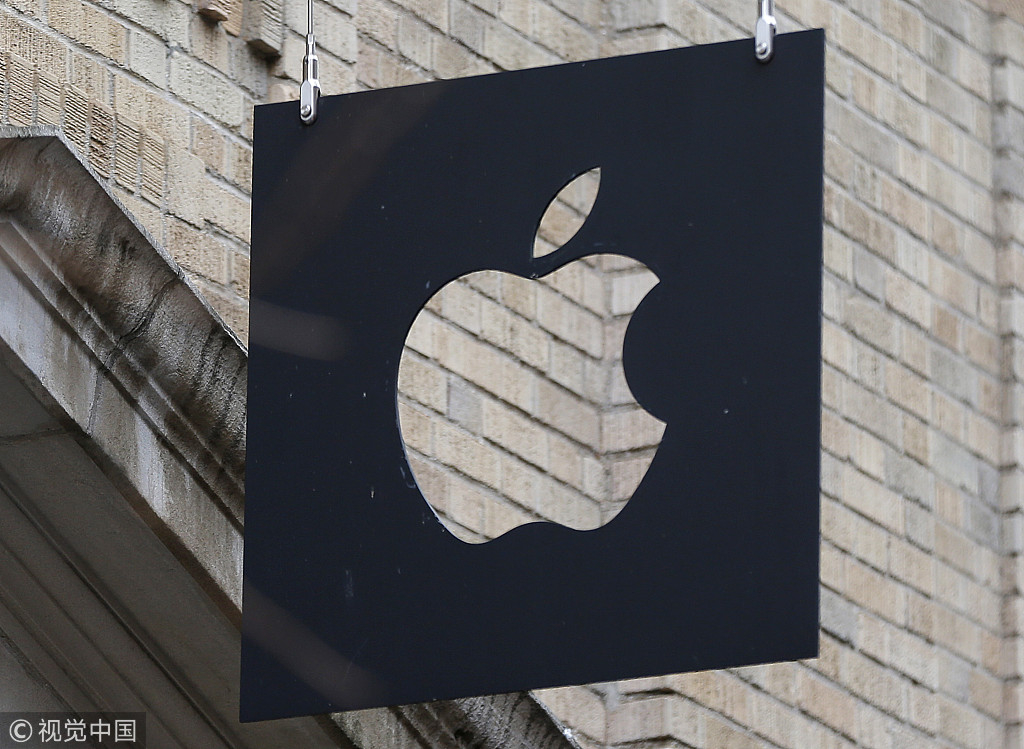
Opinion
11:28, 10-Apr-2019
Anti-Huawei fear factor has just been exposed as a myth
Adam Garrie

Editor's Note: Adam Garrie is the director of the UK-based global policy and analysis think tank Eurasia Future and co-host of talk show "The History Boys." The article reflects the author's opinion, and not necessarily the views of CGTN.
Reports have surfaced indicating that the U.S. tech giant Apple is looking to purchase Balong 5000 chipsets from the Chinese tech giant Huawei. This comes after Apple has apparently struggled to develop satisfactory 5G technology of its own.
It is not uncommon for companies like Apple to purchase chips from other producers, but by approaching Huawei, Apple has inadvertently proved several important points.
First of all, while Donald Trump's administration contends that Huawei's 5G products are tools of "espionage" rather than consumer goods, America's top smartphone maker appears to view things differently.
Based on the current reports, Apple sees potential deals with Huawei as business as usual within the context of a highly competitive market in which both Apple and Huawei have clear and rational interests.
Besides, while it has been logically suggested that the U.S. government's anti-Huawei position has been one which invokes a security scare tactic in order to stifle free and fair business conditions, Apple is exploring the possibility that cooperating with Huawei over 5G innovation might make more business sense than trying to spend millions in order to try and outdo the Chinese company which is widely acknowledged as the global leader in 5G development.

A board with Huawei advertisement and an Apple store are seen in Shanghai, January 19, 2019. /VCG Photo
A board with Huawei advertisement and an Apple store are seen in Shanghai, January 19, 2019. /VCG Photo
Here too, standard business practices are at play as many international car makers often purchase engines from ostensible competitors rather than waste money trying to outdo engines that can scarcely be improved upon.
Huawei representatives have refused to comment on the matter but this has only increased speculation regarding Apple's potential for cooperation with China's top 5G innovator. Although conventional wisdom would suggest that such a development might set Apple on the course for a showdown against the U.S. government, this is not necessarily the case when one takes a long view of the matter.
In the 1980s, during China's reform and opening-up, the country's then leader Deng Xiaoping realized that it was important for Chinese industry to learn from international best practices in order to develop a major domestic industrial base with Chinese characteristics that could evolve into a major innovator over the long term.
Today, China is rapidly transforming itself from a significant producer of industrial and technological goods into a key global innovator of such goods. As Chinese President Xi Jinping's drive to replace the concept of "Made in China" with "Created in China" is still in its early stages, the world will soon see ever more key innovations coming out of China.
Just as Chinese industry gained experience through cooperation with foreign partners after 1978, so too can non-Chinese companies like Apple now attain win-win results from partnering with companies like Huawei.
As Donald Trump himself stated that he wants U.S. companies to be at the forefront of both 5G and "6G," it actually makes perfect sense for Apple to strengthen the reputation of its own brand by working with a partner that has established itself at the forefront of the next big phase of mobile data development.

An Apple retail location is open for business on Prince Street in the Soho section of New York City, November 27, 2018. /VCG photo
An Apple retail location is open for business on Prince Street in the Soho section of New York City, November 27, 2018. /VCG photo
Whether or not Apple and Huawei end up partners in the future, the fact remains that in a world where technology transcends national frontiers, the best method through which to put the best and most cost-effective technology into the hands of ordinary people is for innovators throughout the world to cooperate in the pursuit of win-win outcomes.
Both Huawei and Apple are significant companies that will almost certainly continue to innovate well into the future. If such companies were to pool their capabilities through various cooperative endeavors, not only would this be a sound business decision but it would help to improve the lives of ordinary people who can benefit greatly from the immense potential inherent in 5G technology.
(If you want to contribute and have specific expertise, please contact us at opinions@cgtn.com.)

SITEMAP
Copyright © 2018 CGTN. Beijing ICP prepared NO.16065310-3
Copyright © 2018 CGTN. Beijing ICP prepared NO.16065310-3